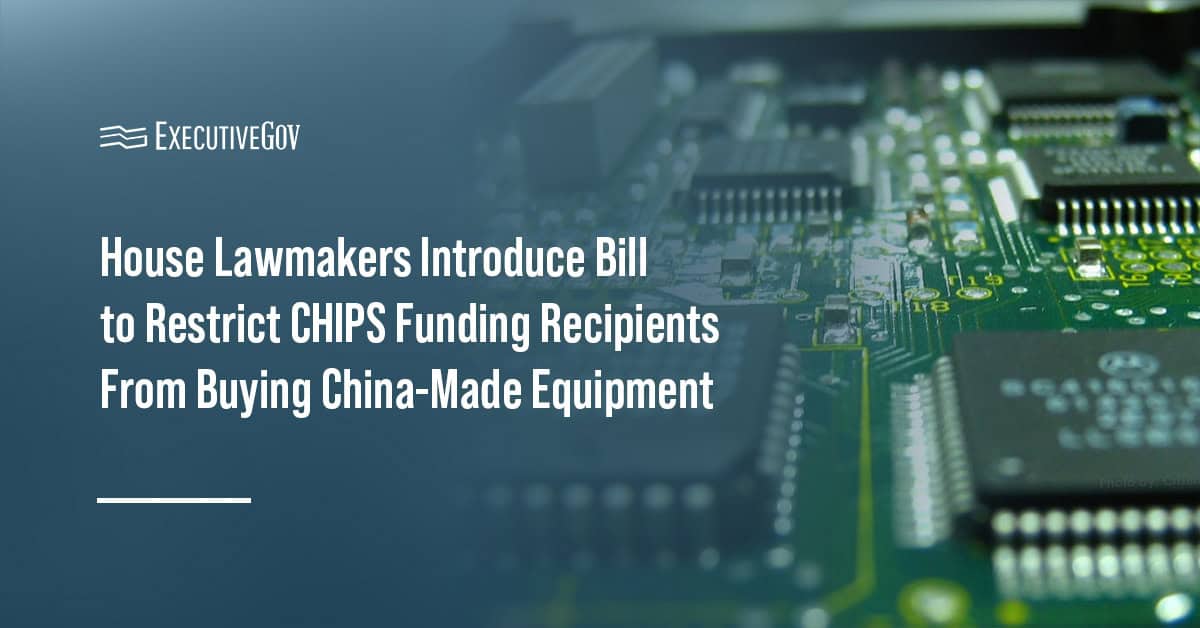Reps. Zoe Lofgren, D-Calif., and Jay Obernolte, R-Calif., have introduced a bipartisan bill to prohibit companies receiving CHIPS Act funding from purchasing specialized semiconductor manufacturing equipment made by entities owned or controlled by the Chinese government and other U.S. adversaries.
The Chip Equipment Quality, Usefulness and Integrity Protection Act of 2025, or Chip EQUIP Act, aims to ensure that U.S. investments to revitalize its domestic semiconductor manufacturing capacity do not inadvertently subsidize state-backed companies.
Sens. Mark Kelly, D-Ariz., and Marsha Blackburn, R-Tenn., plan to introduce a Senate companion to the Chip EQUIP Act in early December.
Table of Contents
How Might the Chip EQUIP Act Strengthen US Microchip Industry Security?
The Chip EQUIP Act bars companies that have secured funding through the Creating Helpful Incentives to Produce Semiconductors, or CHIPS, and Science Act from purchasing specialized manufacturing tools made by Chinese, Russian, North Korean or Iranian firms.
According to an overview of the bill published by Lofgen’s office, while China trails the United States in manufacturing advanced semiconductor tools, Beijing is ramping up manufacturing of legacy technologies that are not covered by export controls.
“The CHIPS and Science Act made historic investments to surge production of American-made semiconductors and address the supply chain vulnerabilities created by decades of offshoring in the semiconductor industry,” stated Lofgren, a ranking member of the House Science, Space and Technology Committee.
“It is no surprise that other nations have taken note of these investments and are working to grow their own domestic capacity. We must continue to put American manufacturing first and strengthen our supply chains to remain ahead of our adversaries, like China. This common-sense bill will ensure CHIPS investments are not used to support our adversaries’ capacity to develop semiconductor manufacturing equipment,” she continued.
This restriction is set for 10 years, though the commerce secretary may grant exemptions if equipment is unavailable from the U.S. or allied nations or is needed for national security purposes.
How Is the US Working to Bolster Its Semiconductor Supply Chain?
The CHIPS and Science Act was signed into law in 2022 to authorize a nearly $53 billion investment in U.S. semiconductor manufacturing, research and development and workforce.
In May, the Senate passed the Securing Semiconductor Supply Chains Act, a bipartisan bill that increases investments in American manufacturing of semiconductors to reduce the nation’s reliance on foreign suppliers.





